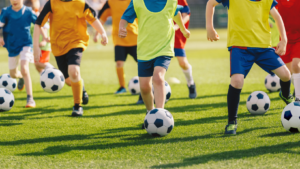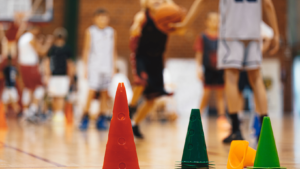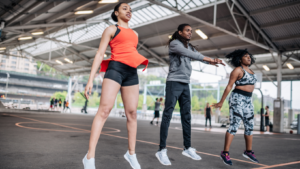Youth sports performance training has rapidly evolved, becoming a cornerstone for young athletes seeking to enhance their skills and boost their competitive edge. As sports become more demanding, the need for specialized training programs tailored to the unique needs of young athletes has never been greater. These programs focus not only on physical development but also on mental resilience, ensuring a well-rounded approach to athletic excellence.
Parents and coaches are increasingly recognizing the benefits of introducing structured training early in a child’s athletic journey. By doing so, they help cultivate essential skills such as agility, strength, and endurance, while also fostering a lifelong love for sports. With the right guidance and support, young athletes can unlock their full potential, paving the way for future success both on and off the field. As the landscape of youth sports continues to expand, understanding the importance of performance training is crucial for nurturing the champions of tomorrow.
Youth Sports Performance Training

Youth sports performance training equips young athletes with essential skills necessary for competitive play. It targets specific areas of physical and mental fortitude. This type of training entails tailored exercises focusing on strength, speed, agility, and endurance—important aspects for any athlete’s development. For physical training, exercises like plyometrics, weightlifting, and flexibility routines enhance muscle strength and movement efficiency.
Mental conditioning is just as critical and includes strategies to boost focus, resilience, and confidence, which aid performance under pressure. Young athletes improve their cognitive skills through mindfulness, visualization, and sports psychology techniques. When integrated into a training schedule, these mental drills foster a growth mindset and mental toughness.
Benefits of Performance Training for Youth
Youth sports performance training offers numerous advantages that contribute to developing well-rounded athletes. Focusing on both physical and mental aspects, it ensures that young athletes gain necessary skills to excel.
Physical Development

Performance training enhances key physical attributes. Exercises targeting agility improve quick directional changes essential in sports like soccer and basketball. Strength training, involving weightlifting and bodyweight exercises, builds muscle, increasing power output in actions like sprinting and jumping. Endurance routines, including cardiovascular workouts, boost stamina for sustained activity in sports such as long-distance running. Flexibility routines, like stretching and yoga, prevent injuries by increasing range of motion and improving athletic performance. Through structured programs, young athletes establish a robust physical foundation.
Mental and Emotional Growth
Mental conditioning programs sharpen focus and boost resilience. Mindfulness techniques help young athletes maintain concentration during critical moments of competition. Visualization exercises build confidence by allowing athletes to mentally rehearse successful outcomes. Emotional growth is nurtured through teamwork and leadership activities that develop communication skills and a positive attitude. Handling sports-related stress builds character and fosters a determined mindset. By supporting mental and emotional development, training cultivates well-adjusted individuals prepared for both sports and life challenges.
Key Components of an Effective Training Program

An effective youth sports performance training program consists of various key components designed to enhance overall athletic ability. By focusing on specific areas, training programs can significantly contribute to the physical and mental development of young athletes.
Strength and Conditioning
Strength and conditioning form the foundation of a robust training program. This component involves exercises like weightlifting, resistance training, and bodyweight exercises aimed at increasing muscle mass and endurance. By building strength, young athletes improve their performance and reduce the risk of injury.
Speed and Agility
Speed and agility training focuses on helping athletes move quickly and efficiently. Drills such as ladder drills, cone drills, and plyometrics are commonly used to develop quickness, enhance coordination, and improve reaction times. By incorporating these exercises, coaches can ensure athletes excel in fast-paced, dynamic sports environments.
Flexibility and Balance
Flexibility and balance are essential for optimal performance and injury prevention. Flexibility routines, including stretching and yoga, enhance joint mobility and muscle elasticity. Balance exercises, such as stability ball workouts and single-leg stands, improve proprioception and coordination. Together, these exercises support athletes in executing movements with precision and control.

Leave a Reply